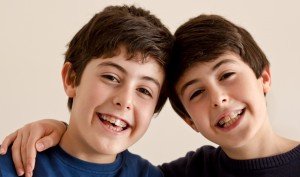 So that you don’t think we’re being hyperbolic or over-reacting, let’s let the scientists speak first. This is a quote from the “Conclusions” section of a peer-reviewed 2016 research brief published by the American Journal of Respiratory Critical Care Medicine.
So that you don’t think we’re being hyperbolic or over-reacting, let’s let the scientists speak first. This is a quote from the “Conclusions” section of a peer-reviewed 2016 research brief published by the American Journal of Respiratory Critical Care Medicine.
“Conclusions: This large community-based sample of children highlights the significant deleterious impact of SDB, particularly in children with moderate to severe obstructive sleep apnea, and also that even snoring alone affects neurocognitive function. By affecting developing capabilities, as illustrated by cognitive measures in a severity-graded manner, SDB could adversely impact children’s capacity to attain academic and adaptive goals, ultimately hampering their ability to reach independence. Our findings support the need for increased awareness of SDB, with particular emphasis on children with more severe obstructive sleep apnea.”
Translation: Talk to your dentist about your children’s snoring. It may be affecting their behavior and their grades in school.
Waking up to the research
The findings in this and other research have turned on its head the sleep apnea treatment world. It’s been common knowledge—and even common sense—for some time that since sleep apnea is about the cutoff of one’s air supply, certain cardiopulmonary issues are at risk of being developed in a number of people experiencing the disorder. Growth failure and cor pulmonale (a condition that causes the right side of the heart to fail) are two examples of severe conditions.
But the new data shows that over time that oxygen deprivation is enough for kids to lose cognitive function. Brain cells need oxygen to survive, without it they die—and eventually so do you. And excessive snoring in children is not all that rare, 10% of preschool-aged kids are diagnosed with it.
Reports have identified reduced attention and higher levels of social problems and anxiety/depressive symptoms in snoring children compared with control groups. In one body of research, MRI scans of more than 10,000 children ages 9 to 10 were performed. The researchers reported that those who snored at night were more than three times likely to have had thinner gray matter in regions of the brain’s frontal lobes as well as in areas of the brain responsible for impulse control and higher reasoning.
The frontal lobes are important for voluntary movement, expressive language and for managing higher level executive functions—the cognitive skills like planning, organizing, initiating, and self-monitoring. Although damage to the lobes can recover, it’s not easy to regain those functions and there’s never a guarantee of full recovery.
Regardless of how much recovery takes place, children who have had cognitive issues due to severe sleep apnea also risk mental health disorders or challenges, at least. That’s because when things like executive functions are not developing for a child as quickly or steadily as his or her peers, he or she pays a price emotionally to at least some degree. The mental challenges can trigger mood swings, apathy, depression, low self-esteem and so on. Therefore, there may be correlations between snoring at night and an increased lack of focus, learning disabilities, and impulsive behaviors, the researchers say.
The good news
Not everything in the sleep apnea world is grim. If your child snores, talk to your dentist and/or doctor. Diagnoses can be made and advanced treatment, like the Vivos system we use at Dentalux, can be done. If you don’t know whether your child snores, regular dental visits up the odds a dentist will spot certain signs that your child has some level of obstructive sleep apnea.
Here is a list of things you can do at home to reduce snoring in your kids:
- Check on your kids before you go to bed
- Roll your child onto their side to sleep
- Place a humidifier in your child’s bedroom
- Remove potential allergens from their bedroom and/or use an air purifier
- Use a nasal wash of saline water to clear out your child’s nasal passages
- Help your child maintain a healthy weight
- Schedule a visit at Dentalux







Leave a Reply